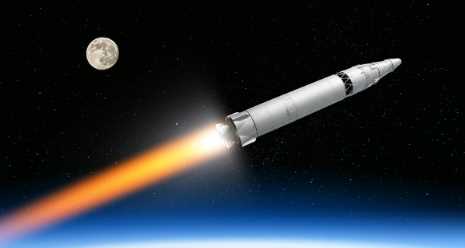Rocket propulsion systems are the backbone of space exploration, enabling us to overcome Earth's gravitational pull and venture into the vast expanse of the cosmos. Among the various propulsion technologies, the rocket repulsion system stands out as a critical component. In this blog post, we will explore what the rocket repulsion system is, how it works, and its pivotal role in advancing space exploration. Join us as we uncover the power behind this remarkable technology that propels us toward the stars.
Understanding the Rocket Repulsion System
The rocket repulsion system, commonly known as a rocket engine, is a propulsion device that generates the necessary thrust to propel a rocket into space. It operates on the principle of Newton's third law of motion, which states that for every action, there is an equal and opposite reaction. By expelling high-speed exhaust gasses in one direction, the rocket engine generates an equal and opposite force, propelling the rocket forward. This system is essential for overcoming Earth's gravity and achieving the immense speeds required for space travel.
Types of Rocket Propulsion Systems
Rocket engines come in various types, each with its own advantages and applications. The two main categories are liquid propulsion systems and solid propulsion systems. Liquid rocket engines use a combination of liquid propellants, such as liquid oxygen and liquid hydrogen, while solid rocket engines rely on solid propellant materials. Both systems have their unique characteristics, with liquid propulsion offering better control and efficiency, and solid propulsion providing simplicity and reliability. The choice of propulsion system depends on factors like mission requirements, payload capacity, and desired performance.
Contributions to Space Exploration
The rocket repulsion system plays a pivotal role in space exploration, contributing to several key aspects:
a) Launching Satellites and Spacecraft: Rocket engines propel satellites and spacecraft into their intended orbits, allowing us to study the Earth, observe distant celestial bodies, and gather valuable scientific data.
b) Human Spaceflights: Rocket propulsion enables manned missions, transporting astronauts to space stations, lunar expeditions, and future missions to Mars. It provides the necessary thrust for spacecraft carrying humans to venture beyond Earth's atmosphere.
c) Deep Space Exploration: Rocket repulsion systems are vital for missions that aim to explore the outer reaches of our solar system and beyond. They allow us to send probes and spacecraft on extended journeys to study distant planets, asteroids, and comets.
d) Interplanetary Travel: As we set our sights on interplanetary travel, rocket engines are crucial for propelling spacecraft across vast distances, facilitating missions that aim to establish human presence on other celestial bodies.
Advances in Rocket Propulsion Technology
Continuous advancements in rocket propulsion technology have led to improved efficiency, reliability, and sustainability. Developments such as reusable rocket systems, like SpaceX's Falcon 9, reduce the cost of space missions by allowing the recovery and reuse of expensive rocket stages. Furthermore, innovations in propulsion systems aim to enhance fuel efficiency, decrease environmental impact, and enable faster interplanetary travel. Concepts like ion propulsion, nuclear propulsion, and solar sail technology hold promise for future space exploration endeavors.
Conclusion
The rocket repulsion system is the cornerstone of space exploration, propelling us beyond the confines of Earth and into the vastness of space. With its ability to generate the necessary thrust, this remarkable technology has enabled remarkable achievements in satellite deployment, human spaceflight, deep space exploration, and interplanetary travel. As advancements in rocket propulsion technology continue to unfold, we can look forward to even greater discoveries and expeditions that will push the boundaries of human knowledge and inspire future generations of space explorers.




Leave Comment